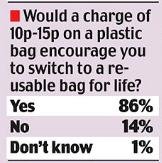Most political geographers would get the allusion of the title. The first part is to the 17th century world of sovereignty, rights and social contract theory of Thomas Hobbes. For Hobbes peace would be secured when “a multitude of men, united as one person by a common power” choose to covenant their individual power to the ‘body politic’ by relinquishing some of their rights to a sovereign (the right to make war or take life for example) [see Hobbes 1640, Chp XIX, para 8].
The second part references Michel Foucault’s biopower where the claim to legitimacy by ‘the state’ is based on the guarding and fostering of productive life (see Foucault “Society Must Be Defended, Lectures 1975-76”, page 241) and the commensurate extension of state control over the biological. Foucault argued that in modernity man’s existence as biological (in contrast to legal or political) beings becomes the target of state strategies (biopower). He distinguished two forms of biopower: anatomo-politics and biopolitics – the former targeting the individual subject, the human body, the latter targeting man as a collectivity, the population as a body politic.

Concern with life and death of the individual and population comes to the fore in the questions around organ donation, revealing tensions between the body-politic and the politics of the body .
Defaults, organs and the state
Sadly it is statistically likely that three people in the UK died today awaiting a suitable donor.
As Rhys, Jessica and Mark noted in their article “Geographies of Soft Paternalism”, published earlier this year, “organ donation has become an intensive site for soft paternalist policy experimentation […] One classic tool of soft paternalism [that] has been controversially proposed as an ultimate solution to organ donation shortfalls: the re-setting of the organ donation default.” [draft for Geog Compass viewed here]
In the UK this default is based on the notion that the body is gifted, that is it is voluntarily made available for use after death through an act of conscious choice. So we have an opt-in system where people choose to enter their names on an Organ Donor Register. Doing so is simple, via phone, online or at various sites that we all visit such as the doctors surgery. Yet despite the ease and our consistent collective affirmation that organ donation is a good thing and we would like to be an organ donor in reality only about a quarter of us have done it. This coupled with increasing surgical advances, problems of organ compatibility, and the increase in demand (as life style related conditions like diabetes, liver and heart disease continue to rise) has seen year on year repeated headlines about soaring waiting list times.
Switching to a system based on ‘presumed consent’, (where the citizen is entered onto the register and has to opt-out of it) has been debated in the UK for years. It is common in much of Europe and seems to result in higher donor rates but local and cultural factors may be equally significant.
In nudge terminology this is changing the default option, a powerful tool for changing behaviour because the default position is what happens when you have a choice but choose to do nothing. The rationale for the presumed consent default is that numerous surveys show wide public support and a willingness to be entered on the register of organ donors but that that support is not reflected in the number who actually make the effort to place themselves on it. Why this is the case is varied, with the failure to follow through on stated preferences ranging from irrationality and insecurity – that doctors will not work as hard to save a patient, or an aversion to thinking about ones own death – to simple inertia – people are not motivated enough to enact their preferences by seeking out a means of entering their name on the donor register
But messing with the body, or more precisely the corpse, is a provocative act that turns the body into a site of contestation between state and citizen. In particular some argue that subtle changes in the default position like this reflects the over-reaching of the state and people’s loss of control over their own bodies following death. Indeed in the absence of actual consent the autonomy of the individual, the patient, is undermined. As such changing the default for organ donation raises fundamental questions about legitimate state action and personal freedom.
One of these was pointedly raised by the Archbishop of Wales in his Presidential Address to the Governing Body of the Church in Wales last month when he argued:

Archbishop Barry Morgan
“There is, in presumed consent, a subtle or perhaps not so subtle change of emphasis in the relationship between the individual and the State. That is, that unless we have opted out, our organs belong to the State and the State has the right to do with them as it wills.”
His comments, which echo those of a number of other faith leaders, came following the announcement by Health Minister Lesley Griffiths last month that Wales would introduce what they call a “soft opt-out” system (a White Paper outlining the proposals is imminent). This presumes consent unless the deceased has stated a contrary view or the family object.
This stands in contrast to the Coalition Government policy which has opted for Richard Thaler’s archetypal nudge of using ‘prompted choice’ to encourage organ donation. When you register online for a new drivers licence, you are required to complete a question about organ donation. The freedom of choice remains absolute (you can answer : yes, no or “not yet”) except in so far as the citizen is required to express a choice about organ donation in order to continue with their online driving licence application
In other parts of the world experiments with incentivisation schemes are being tested. For example, Israel and Singapore are experimenting with a ‘priority allocation’ system where those already on the organ donors register are given priority on the waiting list should they need a transplant. In similar vein the Nuffield Council on Bioethics has recently suggested the state might pay the funeral expenses of the deceased who donate their organs (and rejected changing the default to an opt-out scheme). Spain, which has the highest rate of organ donation in the world (nearly 3 times that of the UK), also has a soft opt-out system. But a key factor in its effectiveness seems to be an emphasis on “procurement” with specially trained hospital staff who will always approach relatives of the deceased to ask about donation.
 The body-politic is a complex beast. Changing the default is not necessarily a panacea in itself, indeed it is far to simplistic to look at a nudge policy (like opt-in/out) in isolation and anticipate or attribute a population wide outcome to its implementation.
The body-politic is a complex beast. Changing the default is not necessarily a panacea in itself, indeed it is far to simplistic to look at a nudge policy (like opt-in/out) in isolation and anticipate or attribute a population wide outcome to its implementation.
And this debate about the use of behavioural insights to influence what we do with our decaying empty vessels also reveals something about the governmental rationality of this ‘nudging’ by the state. It has consequences that extend beyond the seemingly party politically neutral target of the intervention. In this case the choice of ‘nudge’ may shift in un-noticed but fundamental ways the relationship between the state and citizen.
For the body-politic the covenanting of rights after death to the ‘head’ of that body – the government – may prove an exercise in biopower, of making live and letting die that provokes some serious soul searching by both state and citizen.
Whilst personally on balance I find pragmatically I agree with an opt-out system for Wales I can’t help but be a little wary of what it means for the body politic. Does an opt-out system extend the reach of the state too far into our private lives and deaths? Does it force on us the relinquishing of further rights to the state? Does it, in Foucault’s terms, reconstitute the citizens body as a subject of the state?
Marc

 Bio-Social Methods for a Vitalist Social Science
Bio-Social Methods for a Vitalist Social Science Nudging Into Subjectification (Powerpoint)
Nudging Into Subjectification (Powerpoint) Porosity, Virality and the Study of Contagion (Prezi Presentation)
Porosity, Virality and the Study of Contagion (Prezi Presentation) Experimental Entanglements in Cognitive Neuroscience (LINK)
Experimental Entanglements in Cognitive Neuroscience (LINK) Nanny, Nudger or Therapist? Therapeutic Approaches to Behaviour Change in an age of ‘Vulnerability’
Nanny, Nudger or Therapist? Therapeutic Approaches to Behaviour Change in an age of ‘Vulnerability’  Using Mindfulness Training in Pro-environmental Behaviour Change (Powerpoint)
Using Mindfulness Training in Pro-environmental Behaviour Change (Powerpoint) What is Impact? Producing Modest and Vulnerable Knowledge
What is Impact? Producing Modest and Vulnerable Knowledge Nudge Meets RCT: Evidence-based Manipulation for the Public Good? (POWERPOINT)
Nudge Meets RCT: Evidence-based Manipulation for the Public Good? (POWERPOINT)









![We, the citizens of Uttarakhand [a state of India] pledge "Not to use plastic bags" Citizens Pledge](https://governingtemptation.wordpress.com/wp-content/uploads/2011/09/citizens-pledge1.jpg?w=500)

